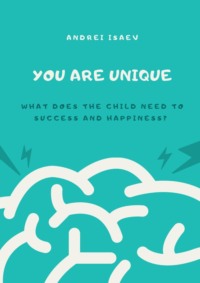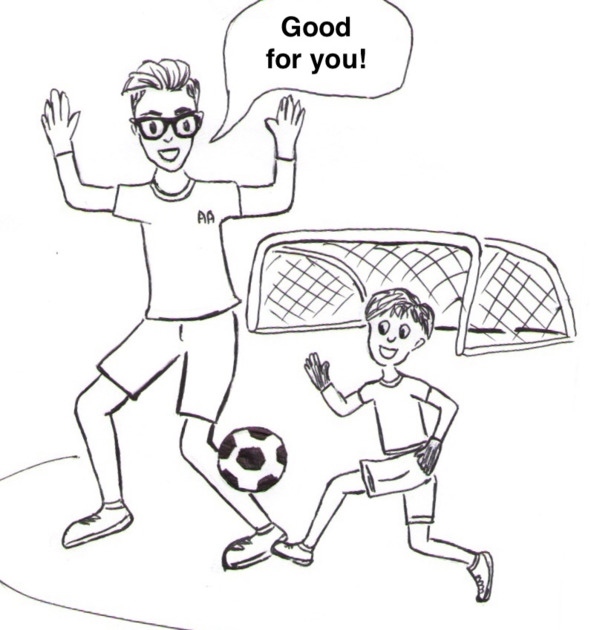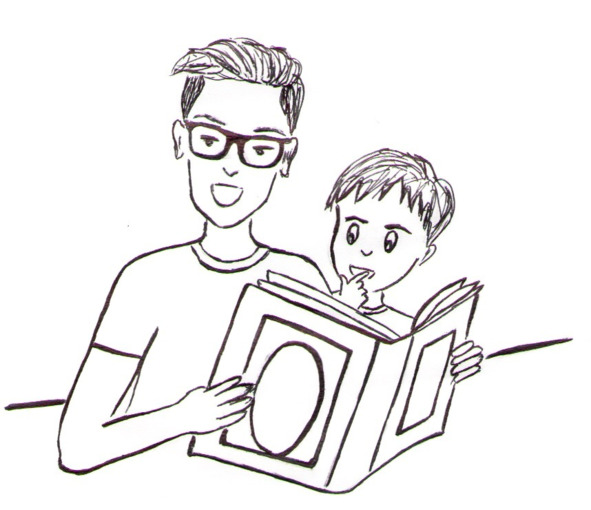
You are unique

You are unique
Andrei Isaev
Translator Vasili Marshev
Translator Andrei Isaev
© Andrei Isaev, 2023
© Vasili Marshev, translation, 2023
© Andrei Isaev, translation, 2023
ISBN 978-5-0051-4823-0
Created with Ridero smart publishing system
Introduction
The development of a human, his/her personality and basic psychological processes begins in childhood.
All the important psychological features, with which a person enters the independent adult world, are acquired in one’s childhood.
It is difficult to overestimate the influence of childhood on the life of an adult.
At this age, the child is surrounded by parents, teachers, relatives – people who are directly involved in the development of the child. And the success of this development depends on them.
This book is for people who surround the child.
It will focus mainly on the children at pre-school and primary school stages.
These stages are extremely important for the development of the child. The experience gained in developmental psychology helps to resolve many issues that parents have to face raising the child at this age.
The purpose of the present is to aid parents and teachers in the development of a happy, successful person, effective in all areas of personal and social life. This development begins in childhood.
At home
1. Why establish rules and how to do it?

Psychologists have noticed long ago that at the age of 6—10 years, children want to imitate their parents. Children are ready to communicate, learn skills and cooperate
At this age, it is important for children to follow established rituals and habits. It is also important for children that their parents have determined limits to regulate their desires and impulses. Children need rituals and clear rules.
Without rules supervised by parents, children learn negative habits, start back talking, react aggressively to requests.
For education to be successful, it must be organized.
Proper organization allows children to feel safe, self-confident, to feel confidence in others, which is very important for development.
Parents, when they engage in the education of a child as a team, create order. Thanks to this order, children feel calm and always know what they are allowed to do, when and how.
Establishing rules helps to organize the activities of the child, to obtain the freedom of action. Rules give the child this freedom.
If rules are missing or unclear, the child does not know how to behave. He/she can only guess.
The child, being aware of clear and understandable rules, feels respected and accepted by the adults who make the rules. Rules help to build trust between parents and the child.
Children like to follow rules, children often criticize parents for not complying with the rules. And kids are right in doing so.
It is important to understand the difference between commands and rules. The rule is a clear, predetermined order that should be always followed by everybody. The command is given by a superior to an inferior.
Rules are clear principles which are followed always and everywhere. A coercion or a command are not rules.
Therefore, prohibitions work only if they are accompanied by rules.
What makes a rule effective?
Here are some features of affective rules:
Consistency. Both parents should establish and control compliance with the rules. A rule does not last long without it.
Precision. The rule should be clear to the child. Formulate it as simply as possible.
Here are some examples of precise and imprecise rules taken from Daniele Novara’s “Do Not Yell At Children”:
Imprecise rules:
– Sit still
– Don’t play with your food
– Eat it all
– Don’t bother your brothers and sisters
– Only adults can turn on the TV
Precise rules:
+ Sit, do not stand, at the dinner-table
+ You can’t leave the table until everyone is finished.
+ The TV must be turned off
+ You can talk
+ Everyone sits in their own seats
Practicality. The child should understand how to follow a rule and be able to do it. A rule should be appropriate to the age of the child.
Feasibility. Rules must be formulated in a way they can be implemented. For example, one cannot run and not sweat. It is almost impossible for a child to play outside and not get dirty. Playing with other children without fighting is also very difficult (and does not make much sense)
Rationality. The rule should have positive educational goals. You can always ask yourself: does this rule help my child to develop?
Books
● Faber, A., & Mazlish, E. (2012). How to talk so kids will listen & listen so kids will talk. Simon and Schuster.
2. How to praise the child?

“Endurance and hard work” – this slogan helps to develop a strong intellectual Self.
Intellectual Self is our attitude to our own mental processes, our intelligence. Psychologists associate the development of the intellectual Self with the development of self-esteem.
Self-esteem is an important thing in our life and is affected by praise. Praise is a powerful tool in development and education. When used right, praise helps us to create a personality able to enjoy intellectual challenges, to respect the value of the effort, and to cope with failures.
Praise in careless hands brings harm. In this case, children become dependent on praise. Instead of supporting, praise turns children into passive and dependent on other people’s opinions.
By praising children for their intelligence and calling them smart for completing exercises, parents tell their children that intelligence is an ornament, not a tool. A tool through which we are able to solve problems, find solutions for problematic situations.
When you praise the child for their efforts, it teaches him/her perseverance in achieving goals. Praising intelligence has the opposite effect.
Some 4 years old children lose enthusiasm when facing obstacles. The parents of these children tend to criticize them for small mistakes.
But when parents fit their expectations to the capabilities of children, praise their efforts and allow them to choose exercises, it develops optimism and leads to positive results.
Learning is a process, but not the proof of success or talent.
When you praise persistence, strategy, the ability to concentrate, the ability to finish tasks, you train and strengthen these qualities in your child.
Recommendations
● Praise the child not only for achievements but rather for efforts. The child should understand that even if the result was not achieved, nevertheless, effort and perseverance are very important.
● Look for the positive. You can find something positive in every action. A goal, for example.
● A good praise is valuable and specific. You can tell exactly what you praise the child for, what you liked in his/her behavior.
● Be careful when you compare the child to others.
● A great way is to compare the child with himself/herself in the past. “Your results are better than a month ago” is a good example. “You finally scored more than Shawn!” is a bad example. Comparing with others develops the wrong motivation. After all, we do not try to exceed someone else’s results, we try to become better ourselves.
● Compare in moderation. Learning is not a competition. Sometimes periods without obvious improvements are stages of growth and development.
Books
● Kazdin, A. E., & Rotella, C. (2013). The everyday parenting toolkit: The Kazdin method for easy, step-by-step, lasting change for you and your child. Houghton Mifflin Harcourt.
3. Reading together with children

Research on developmental psychology suggests that reading good literature with children helps the child become successful in the most important areas:
● Interactions of fairy tale characters helps to build relationships in the team, develop communication skills.
● Reading and understanding fairy tales develop mental skills: attention, imagination, thinking, etc.
● It is useful to read aloud with the child. Reading aloud together brings intimacy, builds trust in the family, shows shared interests, makes reading more theatrical.
Family rituals, traditions, habits help to develop a calm emotional atmosphere in the family. Regular family activities help the child develop a stable system of family values. It is important for the child to feel the safety and stability of the family world – it helps to be confident and trust the world around. Family reading may be that tradition, that ritual.
Reading together cultivates a literary taste in children. It awakens interest and helps to navigate in the world of culture.
Steps
There are several steps to help your child love reading, to be able to explain what was read, to understand the meaning, to link it to the real world or the world of fairy tales:
I. Before reading:
Preparation for reading develops important psychological skills: prognostication, imagination, thinking.
Конец ознакомительного фрагмента.
Текст предоставлен ООО «ЛитРес».
Прочитайте эту книгу целиком, купив полную легальную версию на ЛитРес.
Безопасно оплатить книгу можно банковской картой Visa, MasterCard, Maestro, со счета мобильного телефона, с платежного терминала, в салоне МТС или Связной, через PayPal, WebMoney, Яндекс.Деньги, QIWI Кошелек, бонусными картами или другим удобным Вам способом.
Вы ознакомились с фрагментом книги.
Для бесплатного чтения открыта только часть текста.
Приобретайте полный текст книги у нашего партнера:
Всего 10 форматов